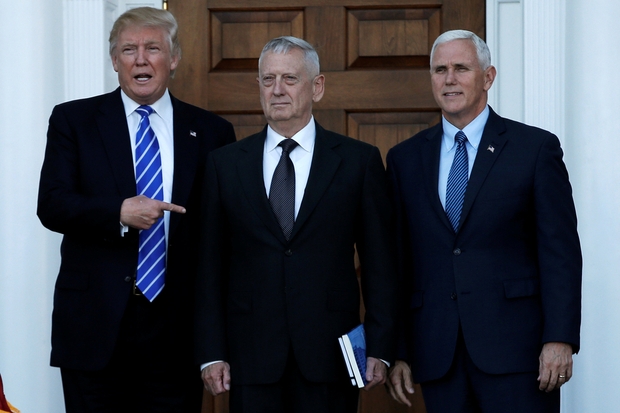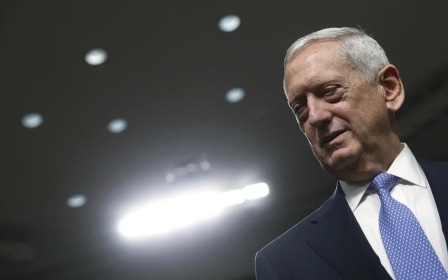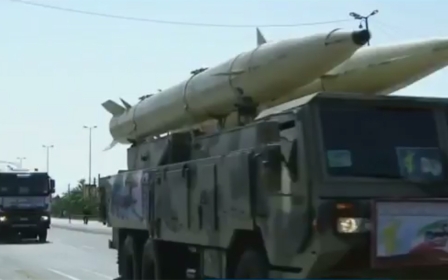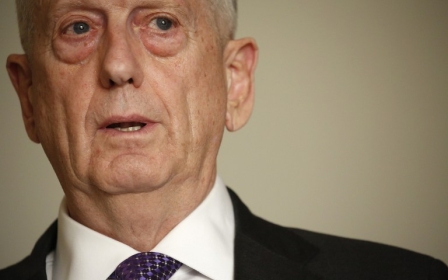US defence chief Mattis quits amid outcry over Trump's Syria pullout

US Secretary of Defence James Mattis has announced that he will step down from the Pentagon, citing differences of opinion with President Donald Trump, with policy on Syria reportedly being the final straw.
Mattis, who submitted his resignation letter on Thursday, is expected to step down from his post at the end of February.
His possible departure had been anticipated since Trump announced earlier this week that he was withdrawing US troops from Syria despite opposition from US allies and the president's own top military officials.
In his resignation letter, Mattis said he was stepping down to allow Trump to have a defence chief whose views align more closely with his own, especially relating to NATO, cooperation with US allies, and standing up to Russia and China.
"Because you have the right to have a Secretary of Defence whose views are better aligned with yours on these and other subjects, I believe it is right for me to step down from my position," the letter reads.
While his resignation letter does not mention Syria, the New York Times reported that he quit in protest against the president's decision to pull US troops out of the country, a move that some observers say amounts to abandoning Washington's Kurdish allies, who helped the US fight the Islamic State (IS) group.
Citing unidentified US officials, the Times said Mattis tendered his resignation after he failed to convince Trump to reverse his decision on Syria during a meeting at the White House on Thursday afternoon.
Despite that report, Trump thanked Mattis for his service and praised him for making a contribution to his administration.
“General Jim Mattis will be retiring, with distinction, at the end of February, after having served my Administration as Secretary of Defense for the past two years,” the president said on Twitter.
Trump also said he would nominate Mattis' successor "shortly".
While Mattis said he shares Trump's view that the US military should not police the world, he stressed the importance of partnerships with friendly nations - an apparent criticism of Trump's repeated skirmishes with leaders of countries traditionally allied with Washington.
"While the US remains the indispensable nation in the free world, we cannot protect our interests or serve that role effectively without maintaining strong alliances and showing respect to those allies," Mattis wrote in the letter.
Differences of opinion
As secretary of defence, Mattis oversaw US military operations in the Middle East, but his views differed from those of the president on several important issues.
After the murder of Jamal Khashoggi in Saudi Arabia's Istanbul consulate on 2 October, Mattis said the journalist's killing would create more regional instability.
In January, Mattis attempted to mitigate the feud between Qatar and Saudi Arabia, saying the countries have to work together.
He also urged Gulf Cooperation Council countries to cooperate and regain cohesion among the members - Bahrain, Oman, Kuwait, Qatar, Saudi Arabia and the United Arab Emirates - all of which are US partners.
While the US remains the indispensable nation in the free world, we cannot protect our interests or serve that role effectively without maintaining strong alliances and showing respect to those allies
- James Mattis, resignation letter
"A united Gulf Cooperation Council bolsters our effectiveness on many fronts, particularly on counterterrorism, defeating ISIS Daesh, and countering the spread of Iran's malign influence," Mattis said, referring IS.
Prior to becoming defence secretary, Mattis said he believed Iran was "the biggest destabilising influence in the Middle East," and that the US must be ready to confront Russian behaviour in areas where the two countries cannot cooperate.
During his confirmation hearing, which took place before the Trump administration recognised Jerusalem as Israel's capital and decided to move the US embassy there, Mattis said the capital of Israel is Tel Aviv.
Mattis is a decorated general from the US Marine Corps who has been praised by his colleagues in the Pentagon for the way he operated in Afghanistan and Iraq. Both Democrats and Republicans have also made positive statements about him.
Called “Mad Dog” and the "Warrior Monk," Mattis lugged 6,000 books with him to Iraq in 2004 and was “known to carry books on Roman philosophy with him on every combat mission," according to an NPR report.
New MEE newsletter: Jerusalem Dispatch
Sign up to get the latest insights and analysis on Israel-Palestine, alongside Turkey Unpacked and other MEE newsletters
Middle East Eye delivers independent and unrivalled coverage and analysis of the Middle East, North Africa and beyond. To learn more about republishing this content and the associated fees, please fill out this form. More about MEE can be found here.




